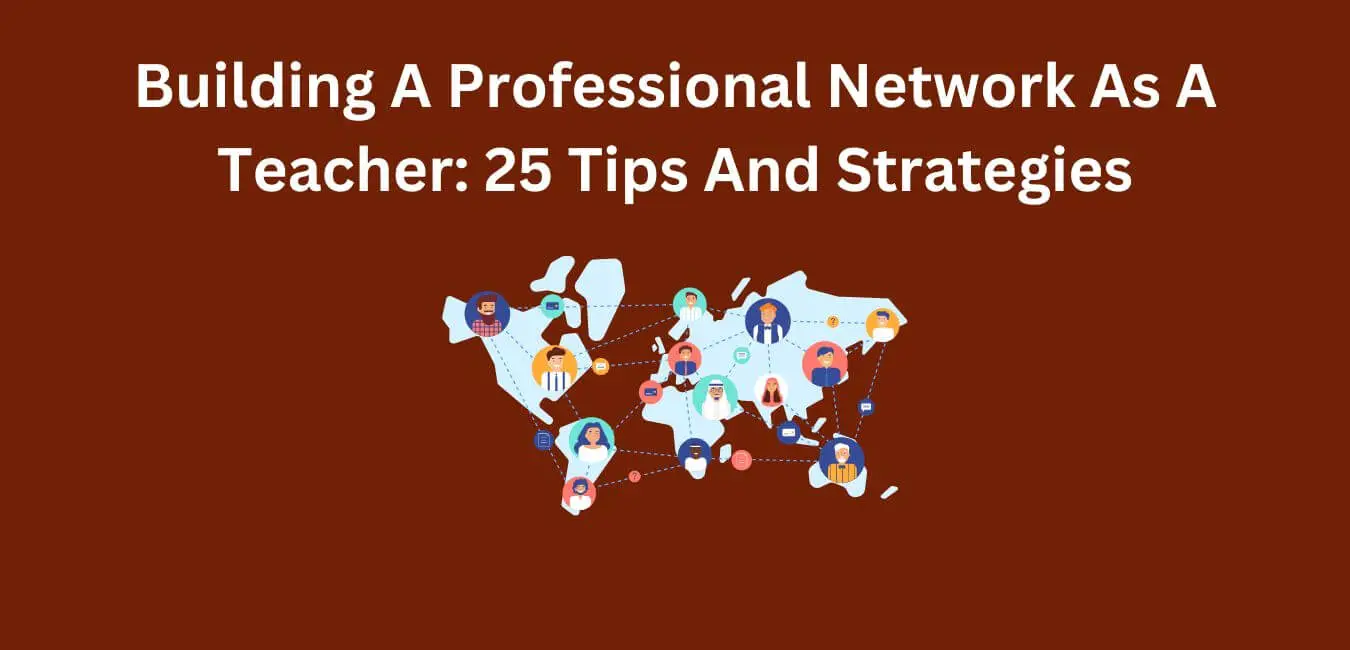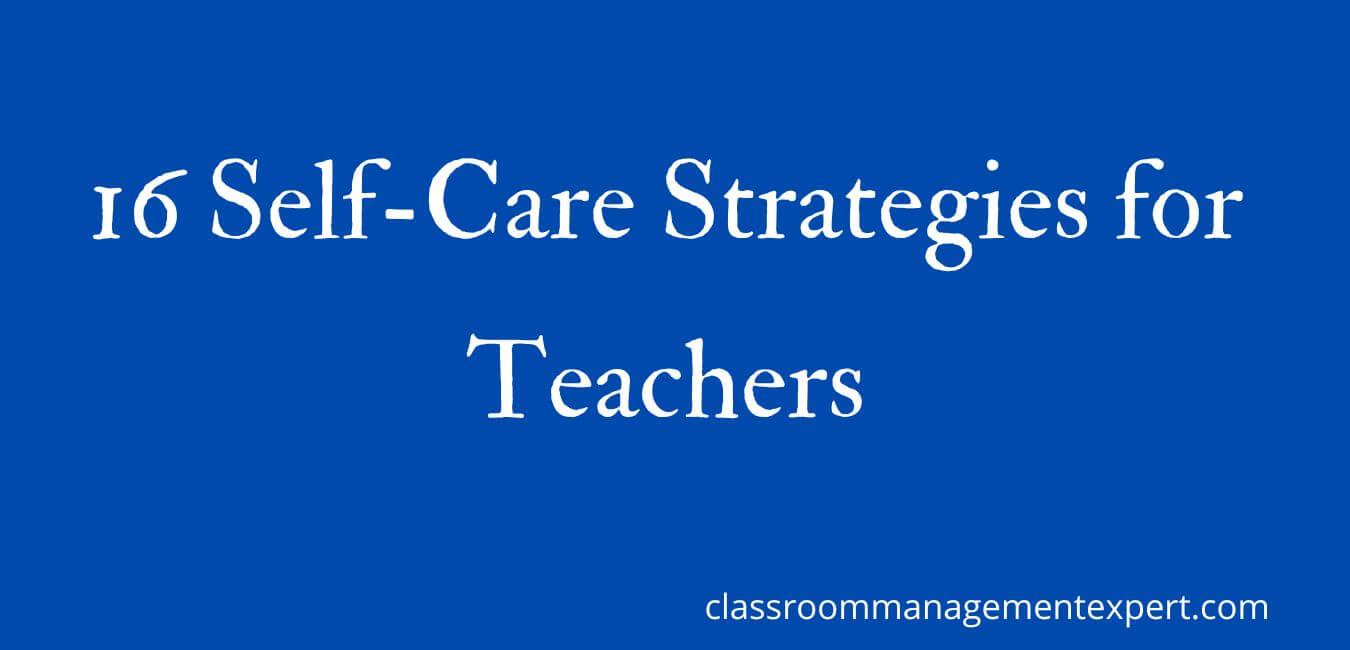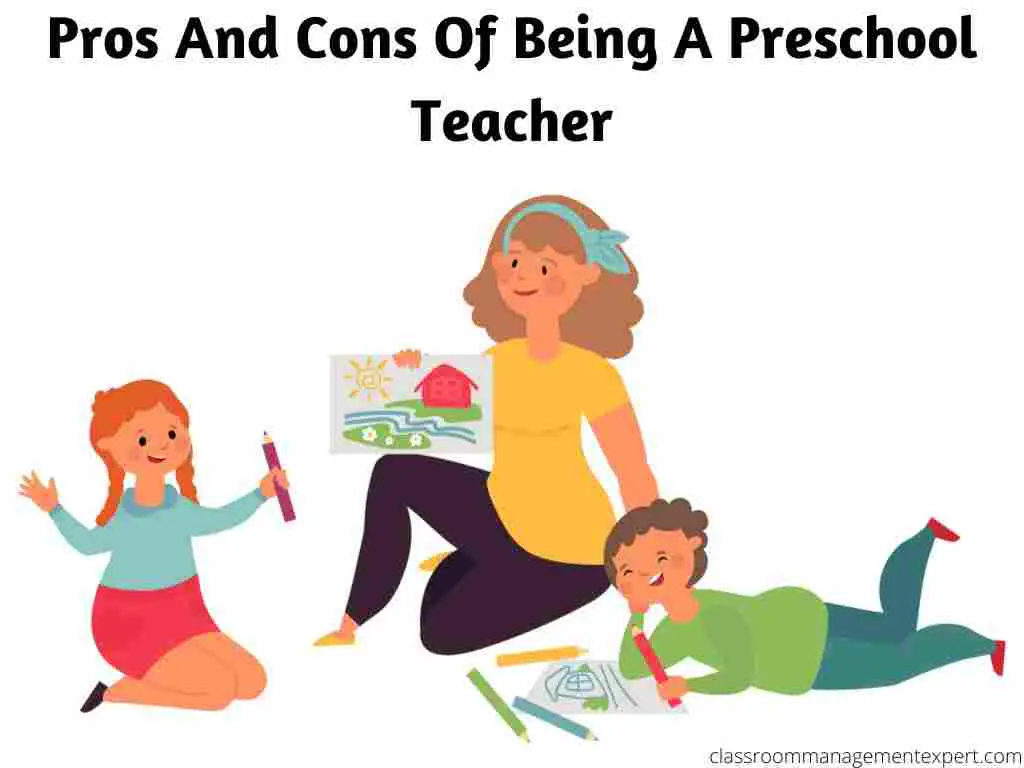Are you a teacher looking to expand your professional network? How can you connect with other educators and build relationships that will support your career growth? In this article, we will explore 25 tips and strategies for building a strong professional network as a teacher.
By understanding the importance of networking in education, identifying your networking goals, and establishing your personal brand, you can begin to make meaningful connections with like-minded professionals.
Joining professional organizations, participating in educational conferences, and staying active in networking groups are all effective ways to expand your network.
Don’t forget the power of following up with new contacts and keeping your network informed about your progress. It’s time to reflect on and revise your networking approach to ensure it aligns with your goals.
Get ready to take your teaching career to the next level by building a robust professional network.
Key Takeaways
- Networking in education is essential for professional growth and career development.
- Joining professional organizations and participating in educational conferences can expand networks and provide valuable learning opportunities.
- Setting networking goals and establishing a personal brand can enhance visibility and credibility within the education community.
- Actively participating in networking groups and regularly reflecting on and revising networking approaches can lead to a strong professional network and continuous improvement.
Tips to Build Your Professional Network As A Teacher
1. Understanding the Importance of Networking in Education
Networking is a crucial aspect of being an educator, and understanding its importance can greatly enhance your professional growth and opportunities. As a teacher, building a strong professional network is essential for your career development. By connecting with other educators, you can gain valuable insights, exchange ideas, and collaborate on projects that can enhance your teaching practices and student outcomes.
Networking for teachers is not just about making connections; it is about building meaningful relationships that can support your professional goals. Your professional network can provide you with access to resources, opportunities for professional development, and a community of like-minded individuals who share your passion for education.
To build a professional network, start by attending conferences, workshops, and events related to your field. Engage in conversations, ask questions, and actively participate in discussions. Take advantage of social media platforms, such as Twitter and LinkedIn, to connect with educators from around the world. Join online communities and forums to share ideas and seek advice.
Remember, building a professional network is not just about what you can gain, but also what you can contribute. Be willing to share your expertise and support others in their professional development journey. By actively engaging in networking activities, you can build a strong professional network that will benefit both you and your students.
2. Identifying Your Networking Goals
Discovering what you hope to achieve through connecting with others in your field is like unearthing buried treasure – it holds the potential to unlock countless opportunities and enrich your teaching journey. When it comes to building a professional learning network, it is important to identify your networking goals. By doing so, you can focus your efforts and make the most of your connections.
Firstly, consider the specific areas in which you want to grow professionally. Are you looking to enhance your knowledge in a particular subject? Do you want to learn new teaching strategies or techniques? Identifying these goals will help you target the right individuals and organizations to connect with.
Next, think about the type of support you need. Are you seeking mentorship from experienced educators? Do you want to collaborate with like-minded teachers? Understanding your support needs will guide you in finding the right people to connect with.
Additionally, consider the long-term benefits you hope to gain from networking. Are you looking to advance your career or explore new opportunities? Are you seeking recognition within your profession? By clarifying these goals, you can seek out professional associations and networking opportunities that align with your aspirations.
In conclusion, identifying your networking goals is crucial when building a professional network as a teacher. It allows you to focus your efforts, connect with the right individuals, and make the most of your professional learning network. So, take the time to reflect on your goals and start exploring the endless possibilities that await you in the world of teacher networking.
3. Establishing Your Personal Brand
Developing and maintaining a distinct personal brand is essential for educators looking to cultivate a strong professional identity within their field. As a teacher, it is important to establish yourself as a knowledgeable and trustworthy individual who is committed to the success of your students.
By actively participating in networking events and building connections with other teachers, you can enhance your personal brand and expand your professional network.
When it comes to establishing your personal brand, it is crucial to showcase your unique strengths and expertise. Highlight your teaching philosophy, innovative strategies, and any notable achievements or certifications. This will help you stand out from other educators and attract like-minded individuals who share similar values and goals.
Another important aspect of building your personal brand is maintaining a consistent online presence. Engage with others on social media platforms and educational forums, sharing valuable insights and resources. This will help establish you as a thought leader in your field and increase your visibility within the education community.
In addition to online presence, consider attending networking events specifically designed for teachers. These events provide opportunities to meet and connect with other educators, exchange ideas, and collaborate on projects. By actively participating in these events, you can expand your professional network and gain valuable insights from experienced teachers.
Remember, building a personal brand takes time and effort. By actively participating in networking events, establishing a strong online presence, and showcasing your unique strengths, you can establish yourself as a respected and influential teacher within your field.
4. Joining Professional Organizations
By becoming a member of professional organizations, you can unlock a treasure trove of resources and connections that will propel your teaching career to new heights. Joining these organizations is a great way to expand your network and connect with other like-minded teachers who are passionate about professional learning and networking.
These organizations provide a platform for teachers to come together, exchange ideas, and collaborate on various projects.
Professional organizations offer a wide range of benefits that can boost your professional development. They often host conferences, workshops, and seminars where you can learn from experts in the field and gain valuable insights into the latest teaching strategies and techniques. Additionally, these organizations provide access to online forums and discussion boards where you can ask questions, seek advice, and share your own experiences with fellow teachers.
Being a member of a professional organization also enhances your credibility as a teacher. It shows that you are committed to your profession and actively seeking opportunities to grow and improve. This can open doors to new career opportunities and make you more marketable in the education field.
In conclusion, joining professional organizations is a smart move for any teacher looking to expand their network and take their professional learning to the next level. Take advantage of the resources and connections these organizations offer to enhance your teaching career.
5. Participating in Educational Conferences
To truly immerse yourself in the world of education and expand your knowledge, attending educational conferences offers a valuable opportunity. Here are four reasons why participating in educational conferences can greatly benefit you in building a professional network as a teacher:
- Networking: Conferences provide a platform to meet like-minded individuals who share your passion for education. Engage in conversations, exchange ideas, and forge meaningful connections with educators from different backgrounds and experiences.
- Professional Development: Educational conferences offer a plethora of workshops, seminars, and keynote speeches led by industry experts. These sessions provide valuable insights and practical strategies that you can implement in your own classroom, enhancing your teaching skills and professional growth.
- Inspiration: Attending conferences exposes you to a diverse range of teaching styles, methods, and perspectives. This exposure can ignite your creativity, inspire innovative approaches to teaching, and challenge your current practices.
- Collaboration Opportunities: Conferences often foster an atmosphere of collaboration and teamwork. Take advantage of this environment to collaborate with other educators on projects, research, or initiatives. These collaborations can lead to long-lasting professional relationships and potential partnerships.
By actively participating in educational conferences, you can tap into a vast network of educators, gain new knowledge, and enhance your teaching skills. This ultimately strengthens your professional network as a teacher.
6. Collaborating with Colleagues
Looking to expand your teaching skills and enhance your classroom practices? How can collaborating with colleagues lead to new insights and innovative approaches to education?
Collaborating with colleagues is a powerful way to build professional relationships, share ideas, and discover new teaching strategies. By working together, you can tap into each other’s expertise and learn from one another’s experiences. This collaboration can happen within your school or district, or even extend to educators across the globe through online platforms.
When you collaborate with colleagues, you open yourself up to a wealth of knowledge and resources. By sharing ideas and discussing different approaches to teaching, you can gain fresh perspectives and discover strategies that you may not have considered before. Collaborating also provides networking opportunities, allowing you to connect with other educators who share similar interests and passions.
Through collaboration, you can create a supportive community where everyone is invested in each other’s success. By pooling your collective wisdom, you can collectively improve your teaching practices and positively impact student learning.
So, reach out to your colleagues, attend conferences, and join online communities to start collaborating today. Together, you will foster a culture of innovation and continuous improvement in education.
7. Engaging with Local Community
Engaging with the local community can provide teachers with valuable opportunities to connect with parents, community leaders, and organizations, fostering a sense of collaboration and support for student learning. By actively participating in community events, teachers can build relationships that go beyond the classroom, creating a network of support for both themselves and their students.
Here are three ways engaging with the local community can benefit teachers:
- Networking with parents: Attending community events allows teachers to meet and connect with parents, establishing open lines of communication. This collaboration can strengthen the teacher-parent partnership, leading to better understanding and support for the student’s educational journey.
- Community events: Getting involved in local events such as fairs, festivals, or fundraisers can help teachers establish a positive presence within the community. This can lead to increased community support, resources, and opportunities for students.
- Supporting new and young teachers: Engaging with the local community can be particularly beneficial for new and young teachers. It provides them with a platform to learn from experienced educators, gain insights, and access resources that can enhance their teaching practices.
By actively engaging with the local community, teachers can expand their professional network, gain valuable support, and create a positive impact on student learning.
8. Leveraging Social Media Platforms
Now that you’ve learned about engaging with your local community, it’s time to dive into the world of online networking and leveraging social media platforms.
In today’s digital age, social network sites have become powerful tools for building and maintaining professional connections. These platforms offer a vast array of opportunities to connect with other educators, administrators, and experts in your field.
By actively participating in online networking, you can expand your professional network beyond the confines of your immediate community. Whether it’s joining education-focused Facebook groups, participating in Twitter chats, or connecting with fellow teachers on LinkedIn, these platforms provide a space for you to share ideas, collaborate on projects, and gain insights from educators around the world.
When utilizing social media for professional purposes, it’s important to remember to maintain a positive and professional online presence. Be mindful of what you post, engage in meaningful conversations, and always respect the privacy and boundaries of others.
By leveraging social media platforms, you can tap into a wealth of knowledge and experience that can enhance your teaching practice and open doors to exciting opportunities.
So, don’t be afraid to explore the world of online networking and take advantage of the benefits it has to offer for building your professional network.
9. Connecting with Alumni Networks
Connecting with alumni networks can provide valuable opportunities for expanding your connections and accessing resources that can enhance your teaching career. Here are five reasons why networking with alumni is important for your professional and personal development:
- Access to a wide range of professionals: By connecting with alumni, you can tap into a vast network of professionals who have experience and expertise in various fields related to education. This can provide you with valuable insights and support as you navigate your own teaching career.
- Professional support and mentorship: Alumni networks often offer mentorship programs where experienced educators can guide and support you in your professional journey. This mentorship can provide you with advice, guidance, and encouragement to help you excel in your teaching practice.
- Opportunities for collaboration: Alumni networks can facilitate collaborations and partnerships between educators, allowing you to work on projects together, share resources, and exchange ideas. Collaborating with fellow alumni can open doors to new opportunities and innovative teaching practices.
- Access to job opportunities: Alumni networks often have connections with schools and educational institutions, providing you with a platform to explore job opportunities. By networking with alumni, you can stay updated on job openings and gain insights into the hiring process.
- Build your network: Connecting with alumni not only allows you to expand your professional network but also helps you build meaningful relationships. These connections can provide ongoing support, inspiration, and a sense of community throughout your teaching career.
In conclusion, leveraging alumni networks is crucial for networking, accessing professional support, and building connections that can enhance your teaching career. By actively engaging with alumni, you can tap into a wealth of resources and opportunities that contribute to your professional and personal growth.
10. Volunteering for Committees or Projects
Joining committees or projects through volunteering is like stepping onto a bustling playground, where you can actively contribute to the education community and make a positive impact on students’ lives. By volunteering for such initiatives, you not only expand your professional network but also gain valuable experience and knowledge. It allows you to connect with like-minded individuals who share your passion for education and can offer support and guidance along the way.
To give you an idea of the opportunities that await, here is a table highlighting some volunteering options in committees or projects:
| Committee/Project | Description | Benefits |
|---|---|---|
| Curriculum Development | Collaborate with other educators to create engaging lesson plans and educational materials. | Enhances your teaching skills and creativity. |
| Professional Development | Organize workshops and conferences to provide continuous learning opportunities for teachers. | Expands your knowledge base and leadership abilities. |
| Community Outreach | Engage with parents, community members, and local organizations to foster strong relationships and support for students. | Develops your communication and networking skills. |
| Technology Integration | Explore innovative ways to incorporate technology into the classroom and enhance student learning. | Expands your tech skills and keeps you up-to-date with current trends. |
| Diversity and Inclusion | Work towards creating an inclusive and equitable educational environment for all students. | Enhances your cultural competence and empathy. |
Volunteering for committees or projects not only allows you to contribute to the education community but also helps you build a strong professional network. By actively participating in these initiatives, you demonstrate your commitment to continuous growth and make valuable connections with educators who share your interests and goals. So, don’t hesitate to join committees or projects and take advantage of the opportunities they offer to expand your network and make a positive impact on education.
11. Attending Professional Development Workshops
Attending professional development workshops offers valuable insights and skills that can transform teaching and leave educators feeling inspired and empowered. Here are three ways attending these workshops can help build a professional network and enhance teaching:
- Connect with like-minded educators: Professional development workshops provide a unique opportunity to connect with teachers who share a passion for education. Educators can exchange ideas, collaborate on projects, and build lasting relationships with educators from different schools and districts.
- Expand knowledge and resources: These workshops offer a wealth of resources and information that can be brought back to the classroom. From new teaching strategies to innovative technologies, educators have access to the latest tools and techniques that can enhance teaching and engage students.
- Gain recognition and credibility: Attending professional development workshops shows a commitment to continuous learning and professional growth. It demonstrates to colleagues and administrators dedication to improving teaching practices, leading to increased respect and recognition within the school community.
By actively participating in professional development workshops, educators can enhance their teaching skills and build a network of supportive educators. These connections provide ongoing support and inspiration as educators navigate their teaching journey. So, don’t miss out on the opportunity to attend these workshops and take teaching to new heights.
12. Building Relationships with Mentors
Imagine having a seasoned mentor by your side, guiding you through the ups and downs of your teaching journey, providing invaluable insights and support. Building relationships with mentors is an essential step in building a professional network as a teacher. These mentors can offer guidance, advice, and a wealth of experience that can help you navigate the challenges of the education field.
To build relationships with mentors, start by seeking out opportunities to connect with experienced teachers in your school or district. This could be through formal mentorship programs or informal networking events. Take the initiative to introduce yourself and express your interest in learning from them. Show genuine curiosity and enthusiasm for their expertise.
Once you have established a connection, make an effort to maintain regular communication with your mentor. Schedule regular check-ins or meetings to discuss your progress, seek advice, and share any challenges or successes you may be experiencing. Be open and receptive to feedback and be willing to learn from their experiences.
Building relationships with mentors is not just about gaining knowledge and support; it is also about building a sense of community and belonging within the teaching profession. By developing these relationships, you can create a network of educators who can offer guidance, collaborate on projects, and share resources. Remember, building relationships with mentors is a two-way street, so be sure to offer your own support and assistance whenever possible.
13. Utilizing Online Networking Sites
Embracing the power of online networking sites can be like unlocking a treasure trove of connections and resources for educators. Whether you’re a seasoned teacher or just starting out, utilizing online networking sites can greatly enhance your professional network and provide valuable resources to enhance your teaching practices.
One of the best ways to expand your network is by joining online communities specific to education. These communities often host virtual networking events where educators can connect with others who share similar interests and goals. Participating in these events allows you to engage in meaningful conversations, share ideas, and gain insights from experienced professionals.
Social networking sites like Twitter and LinkedIn are also excellent platforms for connecting with educators from around the world. By following influential educators, joining relevant groups, and actively engaging in discussions, you can expand your network and gain access to a wealth of online resources.
In addition to networking, online platforms are a great source of professional knowledge. Many educators share their expertise through blog posts, podcasts, and webinars. By following these online resources, you can stay up to date with the latest teaching strategies, educational research, and industry trends.
In conclusion, online networking sites offer educators a valuable opportunity to connect with like-minded professionals, access a wealth of resources, and stay updated with the latest trends in education. So, don’t miss out on the benefits of digital networking – start exploring these platforms and build your professional network today.
14. Creating a Personal Website or Blog
Don’t underestimate the power of having your own personal website or blog as an educator – it’s like having your own virtual classroom where you can share your ideas, experiences, and resources with others in an interactive and dynamic way. Building a professional network as a teacher is crucial, and creating a personal website or blog can greatly aid in this endeavor.
By having a platform to showcase your expertise and insights, you can attract like-minded individuals and foster meaningful connections.
When building a professional network, it’s important to establish your online presence. A personal website or blog allows you to do just that. You can showcase your teaching philosophy, highlight your achievements, and share your educational journey. By doing so, you can attract potential collaborators, mentors, and even job opportunities.
Additionally, a personal website or blog provides a space for you to share valuable resources and insights with other educators. By regularly updating your site with relevant content, you can position yourself as a thought leader in your field and gain credibility among your peers.
Moreover, a personal website or blog allows for interaction and engagement. Visitors can leave comments, ask questions, and initiate discussions. This creates a sense of community and enables you to connect with fellow educators who share similar interests and passions.
In conclusion, creating a personal website or blog is a powerful strategy for building a professional network as a teacher. It provides a platform to share ideas, experiences, and resources, while also fostering connections and collaboration with other educators. Don’t miss out on this opportunity to enhance your teaching career and make a meaningful impact in the education community.
15. Balancing Online and Offline Networking
To truly maximize your networking potential, you need to find the perfect balance between online connections and face-to-face interactions. Building your PLN (Personal Learning Network) requires both operational and personal networking skills. Here are four strategies to help you balance your online and offline networking efforts:
- Attend conferences and workshops: In-person networking events provide valuable opportunities to connect with other professionals in your field. Take advantage of these events to expand your network and learn from others’ experiences.
- Join professional organizations: Being a member of a professional organization allows you to connect with like-minded individuals who share your interests and goals. These organizations often host events and provide resources to support your professional and personal growth.
- Engage in online communities: Participating in online forums, social media groups, and education-specific platforms can help you connect with educators from around the world. Engage in conversations, share resources, and collaborate on projects to expand your network and gain new perspectives.
- Schedule regular face-to-face meetings: While online connections are convenient, nothing beats the power of meeting someone in person. Make an effort to schedule coffee dates or lunch meetings with colleagues or contacts to deepen your relationships and foster meaningful connections.
By finding the right balance between online and in-person networking, you can build a diverse and supportive network that will enhance your professional and personal growth.
16. Nurturing Existing Relationships
One key to fostering meaningful connections is by regularly nurturing existing relationships in your network. As a teacher, building a professional network is crucial for your growth and development. By nurturing your existing relationships, you can strengthen your network and create a support system that will benefit you throughout your career.
Here are some tips and strategies to help you in this article section.
- First, make an effort to stay in touch with your colleagues. Reach out to them regularly through email, phone calls, or even social media. Stay updated on their professional endeavors and offer your support whenever possible.
- Second, attend conferences and professional development events where you can reconnect with old colleagues and make new connections. These events provide a great opportunity to network and share ideas.
- Third, consider organizing meet-ups or informal gatherings for your network. This can help foster a sense of community and create a space for collaboration and support.
- Finally, remember to show gratitude and appreciation for your network. A simple thank you note or a small gesture can go a long way in maintaining and nurturing your relationships.
By nurturing your existing relationships, you are investing in your professional growth and creating a strong support system. Take the time to regularly connect with your colleagues, attend events, organize meet-ups, and show gratitude. These strategies will help you build a thriving professional network as a teacher.
17. Exploring Opportunities for Guest Speaking
Engaging in guest speaking opportunities can breathe life into your professional journey, leaving your audience inspired and ignited with a newfound passion for education. As a teacher, building a professional network is crucial for your growth and development.
Exploring opportunities for guest speaking can be an excellent way to expand your network, share your expertise, and learn from others. Here are three reasons why you should consider guest speaking:
- Networking: Guest speaking allows you to connect with educators from different schools, districts, and even countries. It opens doors to valuable collaborations, partnerships, and friendships that can enrich your teaching practice.
- Sharing and Learning: When you speak at conferences, workshops, or webinars, you have the chance to share your knowledge and experiences with a wider audience. At the same time, you also get the opportunity to learn from other educators and gain new insights and perspectives.
- Professional Growth: Engaging in guest speaking builds your credibility and enhances your professional reputation. It can lead to invitations for future speaking engagements, writing opportunities, or even consulting jobs. By stepping out of your comfort zone and sharing your expertise, you can grow both personally and professionally.
By actively seeking guest speaking opportunities, you can expand your network, develop your skills, and make a positive impact on the education community. So, don’t hesitate to embrace these exciting opportunities and take your teaching journey to new heights.
18. Publishing Your Work in Academic Journals
Publishing your work in academic journals allows you to share your expertise with a broader audience and contribute to the advancement of knowledge in your field. It is an opportunity to showcase your research, insights, and findings to fellow professionals who are passionate about the same subject matter. By publishing in academic journals, you can engage in meaningful discussions and debates with other experts in your field, leading to further collaboration and growth.
When publishing your work in academic journals, it is essential to follow the guidelines and standards set by the journal. This ensures that your research is presented in a professional and credible manner. It is also important to carefully select the journals that align with your research interests, as this will increase the likelihood of your work being read by the right audience.
Publishing in academic journals can enhance your professional reputation and credibility. It allows you to establish yourself as an expert in your field and opens doors to new opportunities such as speaking engagements or collaborations. Additionally, publishing your work can contribute to the overall advancement of knowledge in your field, as others can build upon your research and expand upon your findings.
In conclusion, publishing your work in academic journals is a valuable way to share your expertise, contribute to the field, and enhance your professional reputation. By following the guidelines and selecting the right journals, you can effectively communicate your research and make a meaningful impact on the academic community.
19. Engaging with Student Organizations
Now that you’ve explored the world of publishing your work in academic journals, let’s shift our focus to another valuable aspect of building a strong professional network as a teacher – engaging with student organizations.
These groups can provide you with a unique opportunity to connect with students outside of the classroom and expand your learning network.
By actively participating in student organizations, you can gain insights into the needs and interests of your students, allowing you to tailor your teaching approach accordingly. Additionally, getting involved in these organizations can help you develop a deeper understanding of the challenges and experiences that students face, enhancing your ability to support and guide them effectively.
Engaging with student organizations also offers a platform for collaboration and sharing ideas with fellow educators and professionals. By attending meetings, workshops, and events organized by these groups, you can learn from others’ experiences, exchange valuable resources, and explore new teaching methodologies.
Remember to make the most of these opportunities by actively contributing to discussions, sharing your expertise, and building meaningful relationships with both students and professionals in these settings. Your involvement in student organizations can greatly enrich your teaching practice and contribute to your overall professional growth.
So, don’t hesitate to dive into this exciting avenue of professional development!
20. Seeking Feedback and Advice
Seeking feedback and advice from experienced educators and professionals can be a game-changer, propelling your teaching skills to new heights and opening doors to innovative approaches you never thought possible. Building a professional network is crucial for teachers who want to continuously improve and stay up-to-date with the latest trends in education.
By seeking feedback and advice, you can tap into the knowledge and expertise of others, gaining valuable insights and perspectives.
One way to seek feedback and advice is by attending conferences, workshops, and professional development sessions. These events provide opportunities to connect with like-minded individuals and engage in meaningful conversations about teaching strategies and best practices. Additionally, joining online communities and forums dedicated to education can also be a great way to seek advice and gain new perspectives from a wider network of professionals.
When seeking feedback and advice, it is important to approach the process with an open mind and a willingness to learn. Be proactive in reaching out to experienced educators and professionals who you admire and respect. Share your challenges and ask for their insights and suggestions. Remember, building a professional network is not just about receiving feedback; it is also about giving back and sharing your own experiences and expertise.
In conclusion, seeking feedback and advice is essential for building a professional network as a teacher. By actively seeking out opportunities to connect with experienced educators and professionals, you can expand your knowledge and skillset, ultimately becoming a better teacher. So don’t be afraid to reach out and seek the guidance you need to thrive in your profession.
21. Helping Others in Your Network
Assisting colleagues and peers within your network can foster a sense of collaboration and support, leading to the cultivation of strong professional relationships. By helping teachers in your local network, you create a supportive community where knowledge and resources are freely shared. Here are three ways you can contribute to the growth and success of others in your professional network:
- Share your experiences: Draw from your own teaching experiences to provide guidance and advice to your colleagues. By sharing what has worked for you, you empower others to try new strategies and approaches in their own classrooms.
- Connect with former teachers: Reach out to former teachers who have transitioned into different roles within the education sector. They can offer valuable insights and perspectives that can benefit both you and your colleagues. Building connections with those who have a wealth of experience can provide a wealth of knowledge and support.
- Offer support and resources: Be willing to lend a helping hand when a fellow teacher is in need. Whether it’s sharing lesson plans, offering classroom materials, or providing emotional support, small gestures of assistance can go a long way in building a strong support network.
By actively helping others in your network, you contribute to the growth and development of not only your colleagues but also yourself. Together, you can create a community of educators who are committed to continuous improvement and professional growth.
22. Staying Active in Networking Groups
Staying engaged in networking groups is like joining a bustling marketplace of ideas, where educators from different backgrounds come together to exchange knowledge and forge valuable connections. It’s an exciting opportunity to meet new people and explore various ways to build your professional network.
One effective way to stay active in these groups is to attend in-person events. These gatherings provide a chance to engage in meaningful conversations and create lasting impressions. Don’t forget to bring your business cards to these events, as they serve as a tangible reminder of your professional and personal details, making it easier for others to connect with you later.
Another way to stay active is to actively participate in group discussions, sharing your thoughts and insights. By contributing to the conversation, you not only showcase your expertise but also demonstrate your commitment to the network.
Additionally, take the initiative to reach out to other members outside of group meetings. This can be done through email, social media, or even by scheduling one-on-one coffee meetings. By doing so, you strengthen your connections and open doors for future collaborations.
So, make the most of networking groups and embrace the opportunities they offer to meet new people and expand your professional horizons.
23. Following Up with New Contacts
Now that you’ve learned about the importance of staying active in networking groups, let’s discuss the next step in building a strong professional network as a teacher: following up with new contacts.
After attending networking events or connecting with professionals online, it’s crucial to maintain those relationships by reaching out and continuing the conversation. This not only solidifies the connection but also opens up opportunities for professional growth and collaboration.
Here are some ways for teachers to effectively follow up with new connections:
- Send a personalized email expressing your gratitude for meeting them and highlighting specific points of discussion.
- Connect with them on professional networking platforms like LinkedIn to stay updated on their work and share relevant resources.
- Schedule a follow-up meeting or phone call to discuss potential collaborations or share ideas.
- Offer assistance or resources that align with their interests or needs.
By following up with new contacts, you demonstrate your commitment to nurturing professional relationships and creating a strong foundation for collaboration.
This will not only help you stay connected with like-minded educators but also open doors to new opportunities for professional development, mentorship, and career advancement. Building a diverse and supportive network will ultimately enhance your teaching practice and contribute to your overall success as an educator.
24. Keeping Your Network Informed about Your Progress
Don’t forget to keep your network informed about your progress so they can support and celebrate your achievements along the way. Building a professional network as a teacher is not just about making connections, it is also about nurturing those relationships and keeping them updated on your journey. By sharing your progress, you allow your network to be part of your growth and success.
One way to keep your network informed is by utilizing networking sites that offer platforms to share updates and achievements. These sites can be a valuable tool for showcasing your professional interests, projects, and milestones. Regularly updating your profile and sharing relevant content can help you stay connected with your network and keep them engaged with your progress.
In addition to online platforms, strategic networking involves actively reaching out to your connections and updating them personally. This can be done through emails, phone calls, or even face-to-face meetings. By sharing your successes, challenges, and goals, you allow your network to offer support, guidance, and resources to support your learning and growth.
To paint a clearer picture, here’s a table showcasing how you can keep your network informed about your progress:
| Method | Description | Benefits |
|---|---|---|
| Networking sites | Utilize platforms like LinkedIn or Twitter to share updates and achievements. | Showcase your professional interests and projects. |
| Personal updates | Reach out to your connections through emails, phone calls, or face-to-face meetings. | Foster stronger relationships and receive personalized support. |
| Share goals | Let your network know about your future plans and aspirations. | Receive guidance, resources, and opportunities to support your goals. |
By actively keeping your network informed about your progress, you create operational networks that can support you throughout your professional journey.
25. Reflecting on and Revising Your Networking Approach
Reevaluating your networking approach can lead to greater success and connections in your professional journey. Building a professional network as a teacher requires continuous reflection and adaptation. Here are some tips to help you reflect on and revise your networking approach:
- Assess your current network: Reflect on the current state of your professional network. Identify any gaps or areas that need improvement.
- Set goals: Establish clear networking goals that align with your professional aspirations. This will help guide your networking efforts and focus your energy. For example, you can identify key industry professionals to connect with and attend networking events regularly to expand your network.
- Experiment with different strategies: Don’t be afraid to try new approaches to networking. Experiment with different strategies to find what works best for you.
- Seek feedback: Reach out to trusted colleagues or mentors for feedback on your networking approach. They can offer valuable insights and suggestions for improvement. For instance, you can ask for feedback on your elevator pitch or networking introduction and seek advice on how to effectively follow up with contacts.
By reflecting on and revising your networking approach, you can enhance your professional network and unlock new opportunities. Embrace the freedom to explore different strategies and continuously learn and grow in your networking journey.
Conclusion
So there you have it, teacher. You’ve reached the end of this article, and now it’s time for you to go out there and spread your wings.
Building a professional network is like planting seeds in a garden; it takes time, effort, and nurturing. But once those connections start to bloom, the possibilities are endless.
So go forth, teacher, and let your network be the sunshine that helps you grow and flourish in your career.
Happy networking!


















